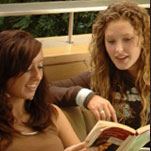What is Academic Integrity?
Academic integrity is a code of ethics for teachers, students, researchers, and writers and is fundamental to the University of Guelph’s educational mission. Trust in the integrity of scholarly work is the foundation of academic life and the value of our university’s degrees.
A Code of Ethics for Students and Faculty
The ethical person does not:
• claim credit for the work of another
• falsify documents
• obstruct another person's ability to perform academic tasks in order to gain an unfair advantage
• disobey the rules of ethical research, or improperly obtain access to privileged information or disseminate that information.
As a student at the University of Guelph, not only should you obey this code of ethics, but you also have the right to expect that your teachers and/or your Graduate Advisory Committee will obey it as well: that they will grade you fairly and that you will have due process if accused of misconduct.
Our Expectations of Students
 The university has expectations of its students too: one of these expectations is that they will honestly engage in the learning process. Since teaching is often understood as a dialogue or conversation between teachers and their students, with learning as the result, you can understand that if a student is falsifying one side of the conversation, no real dialogue is going on. Instead of growing and advancing in learning and understanding, unethical students are going to suffer. In the short run, they may be caught and charged with academic misconduct, resulting in failure of a course, suspension, or expulsion from university. In the long run, they will be unprepared for their profession when they graduate.
The university has expectations of its students too: one of these expectations is that they will honestly engage in the learning process. Since teaching is often understood as a dialogue or conversation between teachers and their students, with learning as the result, you can understand that if a student is falsifying one side of the conversation, no real dialogue is going on. Instead of growing and advancing in learning and understanding, unethical students are going to suffer. In the short run, they may be caught and charged with academic misconduct, resulting in failure of a course, suspension, or expulsion from university. In the long run, they will be unprepared for their profession when they graduate.
Academic Culture is Damaged When Academic Misconduct Occurs
Academic misconduct is a general term describing the act of perpetrating academic offences detrimental to the university’s learning environment, offences which destroy that trust we have said is essential for academic life. Every member of the University of Guelph community is responsible for maintaining the integrity of scholarship and research. This means that academic misconduct, whether it takes the form of:
• plagiarism
• copying another's work in tests, lab reports, theses, journal articles, or computer programs
• damaging, hiding, or destroying library books
• falsifying health certificates
• cheating on exams
will not be tolerated. We must all work together to prevent cheating. We all know that we should not cheat; nor should we allow others to put honest students at a disadvantage by failing to maintain academic integrity.
 The university has expectations of its students too: one of these expectations is that they will honestly engage in the learning process. Since teaching is often understood as a dialogue or conversation between teachers and their students, with learning as the result, you can understand that if a student is falsifying one side of the conversation, no real dialogue is going on. Instead of growing and advancing in learning and understanding, unethical students are going to suffer. In the short run, they may be caught and charged with academic misconduct, resulting in failure of a course, suspension, or expulsion from university. In the long run, they will be unprepared for their profession when they graduate.
The university has expectations of its students too: one of these expectations is that they will honestly engage in the learning process. Since teaching is often understood as a dialogue or conversation between teachers and their students, with learning as the result, you can understand that if a student is falsifying one side of the conversation, no real dialogue is going on. Instead of growing and advancing in learning and understanding, unethical students are going to suffer. In the short run, they may be caught and charged with academic misconduct, resulting in failure of a course, suspension, or expulsion from university. In the long run, they will be unprepared for their profession when they graduate.